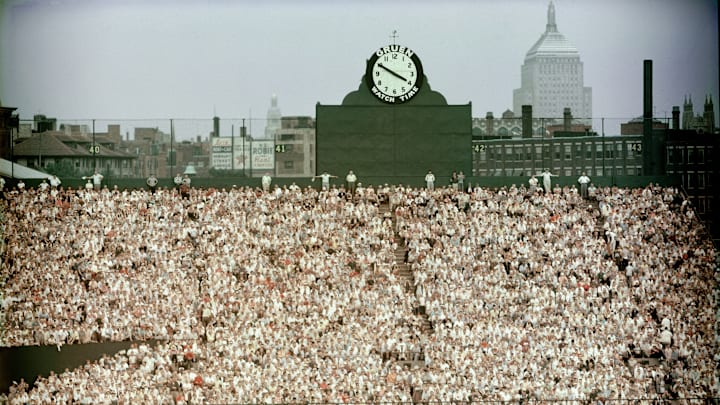Recently, we wrote about a local podcast, the newest method to dispense information and, in that instance, the Boston Red Sox. Before, there was a proliferation of talking heads, blogs, podcasts, and on and on, there was sports radio.
Fans relied on sports radio for exchanges and information: no Instagram, Twitter/X, or multiple social media sites to interact with others. Talk shows with irreverent hosts, often intoxicated callers, locker room gossip, targeting buffoon owners and self-indulgent players.
Now, I will travel back to yesteryear and have a quick synopsis of four "shows" that left a lasting impression and became the catalysts to what we see and hear today on sports radio and cable TV. To me, that past would classify as a "Golden Age."
How sports radio has changed over time
WBZ radio is a clear channel 50,000-watt powerhouse that could reach the midwest if conditions were right. In 1969, Guy Mainella started a show named quite cleverly "Calling All Sports." Guy knew his stuff and had a strong feel for the local sport's pulse, was a former newscaster, and I would be a regular listener working a second shift. On the inaugural show, I was actually a caller with my topic of discussion, Carl Yastrzemski.
Mainella ran a tight ship with callers, and the station's reach garanteed getting a bushel of input from non-Boston fans. Mainella's callers tended to be more knowledgeable and less emotional (me excluded) than those shows that will follow. Later, Mainella was replaced -- I believe in the late 1970s - by another sports legend, Bob Lobel. Here is a clip from the show.
What happens when you bury a microphone at a bar with three Boston sports nuts having beers? You get "The Sports Huddle" and some of the funniest exchanges from listeners and the three wacky hosts -- Eddie Andelman, Mark Witkin, and Jim McCarthy. The bombastic hosts often argued amongst themselves, especially Adelman and McCarthy. They were classics.
The humorous side of sports: The Sports Huddle
The Huddle had WEEI as their original home and moved around the dial through the years. Boston Sports Media Watch provides an excellent profile of the hosts and the show's history. Many comments made then would cause a woke revolt in today's world of ultra-sensitivity. Huddle also had a regular caller that was the most entertaining on sports radio -- Tommy Speers or "Butch from the Cape."
Steve Fredricks was a Philly guy but had a sports talk show on WMEX or "Color Radio" for a few years. Fredricks had a late-night show, and I had a late-night job with free time and would often call in. Sometimes, the call would last an hour simply because the caller's line was dead. I had long discussions of drugs in baseball -- primarily uppers and downers, great Jewish ball players, Hall of Fame rejects, and several off-topic talks on local and national politics.
Fredricks was quite sharp in his analysis and the mirror opposite of the more refined Mainella, with his "Inner Philly" occasionally surfacing. Later, Fredricks teamed with Glen Ordway on WITS before returning to his Philadelphia roots and a long career in broadcasting.
Paring broadcasters is a trial and error process where they may be fantastic individually but paired together, just dreadful. I didn't think it flowed as well as it should with Ordway and Fredricks, who were individually excellent, but it was outstanding with another pair: "Clif and Claf" or Cliff Keane and Larry Claflin. Keane wrote for the Boston Globe and Claflin for the Boston Herald.
Clif and Cal take the stage
Clif and Claf could arouse passion and had little in the way of filters, which was similar to Sports Huddle, only with a more senior citizen approach. I enjoyed their exchanges, especially some nasty and pointed descriptions of certain players' abilities in the pre-metrics age.
My writing will often wander into the past, and that is what Keane, in particular, often did with tidbits about great players and non-greats of the past. Keane was noted for his barbs and sharp wit and would antagonize or encourage players directly. Keane was also one for not avoiding controversy, and I distinctly remember his refusing to call Cassius Clay Muhammed Ali.
After my late-night sojourns with Fredricks, I became a noncaller and slowly a nonlistener with the demise of Clif and Claf. The demise happened with the sudden death of Claflin, and a series of hosts paired with Keene didn't work out.
As mentioned, I have lost interest in sports radio and would like to think it is now the medium itself rather than my age. With Sports Huddle and Clif and Claf, you had nonprofessionals thrust into a situation they were not trained for, but it worked, and I certainly miss it.
